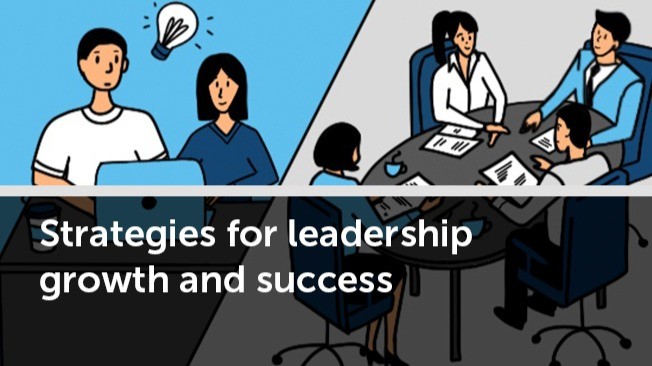
When one thinks about becoming a CEO, it is the timeless skills like leadership, strategic thinking, adaptability, problem-solving, integrity, financial acumen and communication that come to mind. But reaching the top of the corporate hierarchy also means having several qualifications. First, a minimum requirement is a bachelor’s degree, usually in business, finance, or engineering. Second is having extensive and diverse work experience, and a deep understanding of the industry which, in turn, allows one to understand the different aspects of a company and make informed decisions. Third, executive education often acts as additional support to senior managers in achieving the office. And on top of it there is networking, something that all NES alumni share and understand the importance of being in the right place at the right time is part of future career success.
NES boasts some of the best alumni employment statistics. An impressive 30% of graduates secure leadership positions within just three years of earning their diploma, another 30% of graduates take on leadership positions within the first six years working in private firms, international corporations, government organizations, and start-ups. Of course, not all of them have already reached the top of the corporate structure, but today there are more than 100 NES graduates who are CEOs in different firms (out of 3000 graduates in total). Do they share anything in common beyond the fundamental economic background from NES? In fact, it is the strong leadership skills among other things. Can they be taught and trained, or are leaders born with them? The answer depends on the kind of leader you want to become.
Not all CEOs take the conventional path: many follow different career tracks, becoming exceptions that just prove the rule. So we decided to look at some interesting global features that stand out from the common perception.
Whatever the corporate career track, a study of over 2,600 leaders by Elena L. Botelho and Kim R. Powell showed that only 8% of CEOs had no college degree. And among them, founders without a degree have become big stories, if not role models for some young entrepreneurs. They are Richard Branson (Virgin Group), Michael Dell (Dell Technologies), Henry Ford (Ford Motor Co.), Bill Gates (Microsoft Corp.), Steve Jobs (Apple Inc.), Ingvar Kamprad (IKEA), and Amancio Ortega (Inditex (Zara)), to name a few. They dropped out of college or university to focus on their big idea and create from scratch a breakthrough business.
These are the famous names that many people know. However, 4 out of 5 founders struggle with the shift from hands-on creation to the CEO role which is more about strategic leadership of a growing company, an already classic research from Harvard Business School professor Noam Wasserman shows.
The transition from founder to CEO is not just a shift in job title but a profound evolution in leadership style and responsibilities, Somdutta Singh, a Forbes Councils Member, argues. Founders’ hands-on approach most often gives way to a broader, more strategic perspective as the company scales. CEOs focus on big-picture strategy, managing teams, securing funding and building relationships with stakeholders. And this is where executive education helps, allowing one to set a clear vision for the future, navigate market trends and make high-stakes decisions that shape the company’s trajectory.
Singh describes several essential competencies that distinguish CEOs from founders, and which the latter need to develop or strengthen as their business grows. One of them is the ability to delegate effectively which is not as much about passing off tasks but about empowering others and fostering a collaborative environment. Then there is the aspect of building a strong leadership team with clear expectations and providing support while allowing autonomy.
Next, complex organizational structures require strong skills in management, conflict resolution and communication. CEOs must align various departments and teams with the company’s overall strategy, addressing internal challenges, fostering a positive work culture and ensuring that all employees are working towards common goals. Navigating these dynamics requires a nuanced understanding of human resources and organizational behavior, areas that may not have been as critical in the early days of the start-up.
Besides founders turning CEOs, there is also another group of employees who grow in a company from entry level roles and reach the same office. The most recent example is of Elliott Hill who is taking charge of Nike, the legendary American athletic footwear and apparel corporation. Hill had an epic climb of the corporate ladder, beginning his career at the company in 1988 as an apparel sales representative intern and working his way up to CEO. The business world knows other stories like this, including Joe Preston (started at New Balance in 1995 as a senior product manager of running and lifestyle, and was named CEO in 2018), Ursula Burns (joined Xerox in 1980 as a mechanical engineering summer intern to rise to CEO in 2009), Doug McMillon (started as a summer associate in 1984 at Walmart and rose to CEO in 2014), and Mary Barra (started at GM as an intern in 1980 and became CEO in 2014).
And one more notable development. Whereas functional areas such as finance, strategy, and technology were the dominant areas of expertise for to-be-CEOs before, most recently a small but growing group with a background in supply chain management (SCM) has emerged. This change is due to a series of global events, including the Covid-19 pandemic, the conflict in Ukraine, and disruptions in the Middle East and the Panama Canal that have affected major shipping routes.
In the extremely turbulent environment of the past several years this shows that the path to becoming a CEO can be quite different from what was common before. Thus, a strong background coupled with the ability to proactively handle low-probability, high-impact “black swan” events and make major decisions that will impact the future of the company and its stakeholders can take one to the very height of the corporate hierarchy.